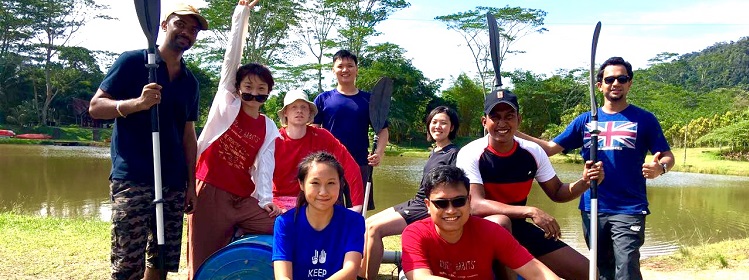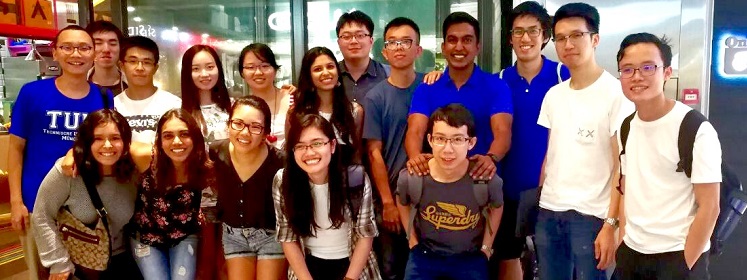Q: Hi Oshin, can you tell us when and how did you start preparing for your graduate studies?
Oshin: Since my second year of undergraduate studies, I became sure that I wanted to pursue my Masters. I started my preparations by searching for courses online, while focusing on building my basic knowledge and spending time in research. With an excellent reputation in education and with a tuition-free system, Germany was my dream country to study. After some research and comparison, I decided that the TUM-NUS joint degree in Industrial Chemistry is the course I wanted to pursue. A degree from two top universities and a variety of scholarship options were the deciding factor. After three rounds of interviews, I was offered an industrial scholarship which took care of tuition fee expenses, plus a monthly stipend.
Q: It is not easy to decide to move abroad for your studies. How did you manage your fears about moving to a foreign country?
Oshin: One of the fears of mine was to start a new life in a foreign country. This was made easy through TUM Asia, because the incoming students were notified about a Facebook group set up by other freshmen. From finding suitable roommates to getting quick answers to our queries, it was very helpful. Another fear was the living expenses I was going to incur in Singapore. Even though food is affordable in Singapore, accommodation options near the University were competitively priced.
Q: After spending a year in Singapore, give us some advice that you wished you had known one year ago.
Oshin: I definitely wished I knew more about getting around in Singapore before I got here. In Singapore, there are a variety of food options for both vegetarian and non-vegetarian diets. It is great to know that one does not need to worry about buying food because you can a good meal in the hawker centers or food courts from $2.50 onwards. Also, I would recommend that one takes a taxi to your accommodation when you arrive at Changi Airport. One tip is to use the various ride-hailing services such as Grab or Uber, and definitely look for discount codes in the apps. Students could also share a taxi or Grab/Uber, which will be reasonably priced if you arrive at the airport in the daytime. For taxis, there are additional surcharges in the evenings and night-time which may increase the taxi cost significantly. With regards to accommodation, those in the joint programmes with NTU prefer to stay in the Jalan Bahar area, whereas those in the TUM or joint NUS programmes will stay in the Dover area. Do get in touch with your classmates or seniors as they may be looking for flatmates or are passing down a room.
Q: Can you tell us how did you adjust to living in Singapore and to the class schedule at TUM Asia?
Oshin: At TUM Asia, the same module runs for two weeks straight, so I learnt to sit in classes for long hours (accompanied by coffee!) But there are one week breaks before the next module and I used the free time to relax and prepare for exams. The lecture rooms get cold sometimes, so it is important to pack a good jacket. One thing I learnt from my classes is that German professors are very punctual with starting class, so I made sure that I got up early on lecture days to give myself sufficient time to get to class.
Q: What are some experiences that your juniors should consider?
Oshin: As a foreign student, I made sure I visited all the tourist landmarks such as Chinatown, Botanic Garden, Gardens by the Bay, Art Science Museum, Clarke Quay (and more) as I got to know this city. I also took the chance to visit the countries of Malaysia and Indonesia, which is just hours’ way from Singapore. I would recommend that students make sure they check out the TUM Asia website and read your university emails, as they organize a variety of activities on the weekends around Singapore which is fun and you get to make lots of new friends.
Q: As you would soon be heading to Germany for your internship, give us a summary of your time in Singapore.
Oshin: I would say that this “Little Red Dot” on the globe is a vibrant cosmopolitan city. There are plenty of things to see and enjoy. Be ready to engage in a multi-cultural environment and see the world in many new perspectives once you live here. Lastly, be sure to learn some common Singapore slang (aka Singlish) before you get here, it will definitely help in communication with the locals! I had the time of my life here in Singapore, and I know every other student will, too.
—
Oshin Sebastian is a student in the joint TUM-NUS Master of Science in Industrial Chemistry programme. More information about the programme here >>





